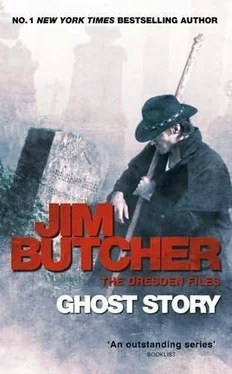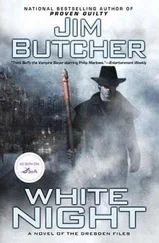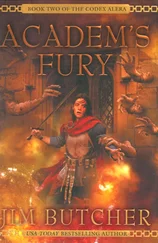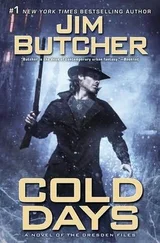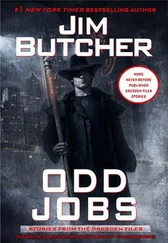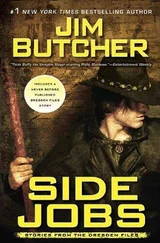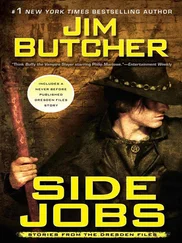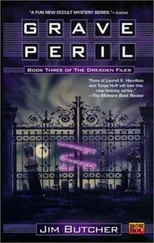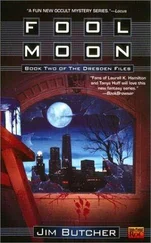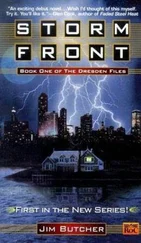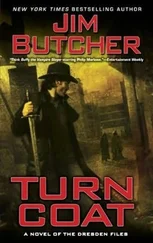“We can go see her,” Molly suggested. “I mean . . . I know where she is.”
I wanted to shout an agreement and leap at the chance. But I couldn’t. So I didn’t.
“Maybe after we take care of business,” I said.
“All right,” Molly said, nodding.
“Better button up your Sight, kid,” I said quietly. “There’s no reason to leave it open so long. Bad things could happen.”
“But . . . I won’t be able to see you. Or hear you. Which . . . seems odd, given that it’s called the Sight . . .”
“It encompasses a lot,” I said loftily. “Kid, you’ve got a gift. Trust your instincts. Which in this case should suggest to you that what you need is the spirit-viewing ointment we made off of Rashid’s faerie-sight recipe, or something like it.”
“Okay,” she said. “Okay.” She frowned and bowed her head, and I saw her Sight being withdrawn, the light at her forehead dwindling and finally winking out.
Murphy was sitting at the very edge of her chair, her back straight, her hands in her lap. “Miss Carpenter?”
Molly turned to look at Murphy. It seemed to take her a second or two to focus her eyes. “Yes?”
“It’s him?”
“He greeted me with a quote from The Empire Strikes Back .”
Murphy’s mouth twitched at one corner. “Him.”
My apprentice nodded and didn’t meet Murphy’s eyes.
“So,” Murphy said. “He’s really . . . really gone. That bullet killed him.”
“He’s gone,” Molly said. “The shade is . . . It’s Harry in every practical sense. It will have his memories, his personality.”
“But it isn’t him .”
Molly shook her head. “I asked him about that once. About what happens to a soul when a ghost is left behind.”
“What did he say?”
“That he had no idea. And that he doubted anyone would ever get a straight answer.”
“Molly,” the older woman said. “I know you’re tired. I would like it if you let me offer you some clothes. A meal. A shower. Some real sleep. My house is protected. I’d like to be able to tell your parents that I did at least that much for you, the next time they call me to ask about you.”
Molly looked around the room for a moment, biting her lip. “Yes . . . it . . .” She shivered. “But . . . it’s better if I don’t.”
“Better for who?”
“Everyone,” Molly said. She gathered herself and rose, using the cane to get to her feet once again. She grimaced in the process. It was obvious that using her leg still caused her pain. “Honestly. I’ve been playing a lot of games, and I don’t want any of them to splash onto you.” She paused and then said tentatively, “I’m . . . sorry about the detective remark, Karrin. That was going too far.”
Murphy shrugged. “Least said, soonest mended.”
My apprentice sighed and began pulling her tattered layers about herself a little more securely. “Mr. Lindquist appears to be working in good faith. I’ll come back tomorrow with something that might let you communicate with Harry’s shade a little more easily.”
“Thank you,” Murphy said. “While you’re at it, it might be smart to—”
There was the sudden blaring of a pocket-sized air horn from outside.
Mort hopped up from his seat into a crouch, ready either to run or to fling himself heroically to the floor. “What was that?”
“Trouble,” Murphy said, unlimbering her gun. “Get d—”
She hadn’t finished speaking when gunfire roared outside and bullets began ripping through the windows and the walls.
Idid what any sane person would do in a situation like that. I threw myself to the ground.
“Oh, honestly, Dresden,” Sir Stuart snapped. He sprinted toward the gunfire, out through the wall of the house. I actually saw the building’s wards flare up with spectral, blue-white light around him as he went through unimpeded.
“Right, dummy,” I growled at myself. “You’re already dead.” I got up and ran after the elder shade.
The living were all kissing hardwood floor as I plunged into the wall of the house. I wasn’t worried about the wards keeping me in—no one ever designed their wards so that bad things couldn’t leave, only so that they couldn’t enter. Besides, I’d had an invitation to come in, which technically made me a friendly—but I found out that “friendly” wards operated on much the same principle as “friendly” fire. Going out through the warded wall didn’t just tingle unpleasantly. I felt like I’d just plunged naked down a waterslide lined with steel wool.
“Aaaaaaaagh!” I screamed, emerging from the wards and onto Murphy’s front lawn, chock-full of new insight as to why ghosts are always moaning or wailing when they come popping out of somebody’s wall or floor. Not much mystery there—it freaking hurts .
I staggered for several steps and looked up in time to see the drive-by still in progress. They were in a pickup truck. Someone in the passenger’s compartment had the barrel of a shotgun sticking out the window, and four figures in dark clothing crouched in the truck’s cargo bed, pointing what looked like assault weapons and submachine guns at Murphy’s house. They were cutting loose with them, too, flashes of thunder and lightning too bright and loud to be real, seemingly magnified by the quiet, still air between the snow and the streetlights.
These guys weren’t real pros. I’d seen true professional gunmen in action, and these jokers didn’t look anything like them. They just pointed the business end more or less in a general direction and sprayed bullets. It wasn’t the disciplined fire of true professionals, but if you throw out enough bullets, you’re bound to hit something.
Bullets went through me, half a dozen flashes of tingling discomfort too brief to be more than an annoyance, and I suddenly found myself sprinting toward the truck beside Sir Stuart, exhilarated. Being bulletproof is kind of a rush.
“What are we doing?” I shouted at him. “I mean, what are we accomplishing here? We can’t do anything to them. Can we?”
“Watch and learn, lad!” Sir Stuart called, his teeth bared in a wolfish grin. “On three, be on the truck!”
“What!? Uh, I think—”
“Don’t think,” the shade shouted. “Just do it! Let your instincts guide you! Be on the truck! One, two . . .” The shade’s feet struck the ground hard twice, like a long jumper at the end of his approach. I followed Sir Stuart’s example on little more than reflex.
A sudden memory flashed into my head—a school playground from my childhood, where mock Olympic Games were being run, students competing against one another. The sun was hot above us, making the petroleum smell of warm asphalt rise from the surface of the playground. I had been competing in the running long jump, and it hadn’t been going well. I forget exactly why I was so desperate to win, but I was fixated on it as only a child could be. I remembered willing myself to win, to run faster, to jump farther, as I sprinted down the lane toward the pink-chalk jump line.
It was the first time I used magic.
I had no idea at the time, naturally. But I remembered the feeling of utter elation that flooded through me, along with an invisible force that pushed against my back as I leapt, and for just an instant I thought I had spontaneously learned to fly like Superman.
Reality reasserted itself in rapid order. I fell, out of control, my arms spinning like a windmill. I went down on the blacktop and left generous patches of skin on its surface. I remember how much it hurt—and how I didn’t care because I’d won.
I broke the Iowa state high school long-jump record by more than a foot. It didn’t stick, though. They disqualified me. I hadn’t even gotten serious about puberty yet. Clearly, something irregular had happened, mistakes had been made, and surely the best thing was to ignore the anomalous leap.
Читать дальше
